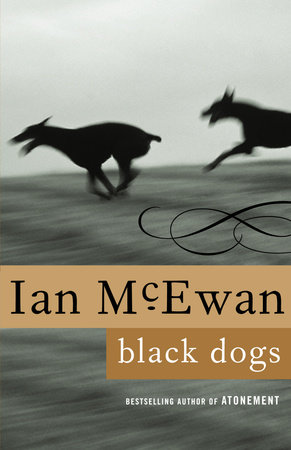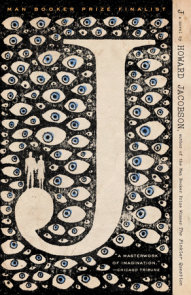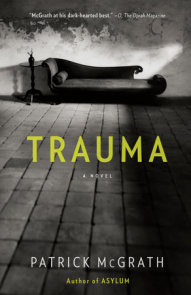READERS GUIDE
Ian McEwan’s novel Black Dogs showcases the author’s range and skill as he delivers unlikely, and welcome, combinations of suspense, ethics, philosophy, and political and religious ideology. In lesser hands, such a mix might be lethal. In McEwan’s, it’s intoxicating.Introduction
"I am uncertain whether our civilization at this turn of the millennium is cursed by too much or too little belief, whether people like Bernard and June cause the trouble, or people like me."Two young Communist Party members, June and Bernard, meet in London in 1946. They fall deeply and quickly in love. They marry. On their honeymoon in France, June has a life-altering experience, discovers religion, and ultimately renounces her allegiance to the party. Five years later, June and Bernard Tremaine separate, but they never divorce, and never become romantically involved with others. Belief waning more slowly, Bernard stays a party member until 1956.
McEwan introduces June and Bernard as young lovers. Readers meet them again some forty years later when their son-in-law, Jeremy, spends time with both June and Bernard as he interviews each of them for June’s memoir. Jeremy himself becomes a character in this novel and in the mock memoir within it.
Religion versus rationality. Your memory versus mine. Love versus daily existence. Sacrificing an individual for the good of the masses. So goes Black Dogs. Set against the fall of the Berlin Wall, the novel travels back in time to Europe after World War II and shows how that war and its demons changed the path of one family. Metaphorically and literally, the black dogs of the title roam the landscape of this novel–Europe and the Tremaine family.
Questions and Topics for Discussion
1. The narrator, Jeremy, sets himself up in the preface as the pole opposite June and Bernard. He says that they have too much belief and he has too little. By the end of the novel, does Jeremy make a choice? Does he believe in something?
2. Whose story is this? June and Bernard’s? Or Jeremy’s?
3. Discuss the author’s decision to use the mock memoir form to tell this story.
4. In Black Dogs the author presents the conflict between emotion and rationality–the women are on one side, the men on another. Is this a gender divide?
5. June and Bernard loved each other, but couldn’t live a life together. June admits this and ponders how millions of people can be expected to get along when two people can’t. Does this novel ultimately present a bleak view of life?
6. Bernard accuses June of sacrificing him and their children for a final, personal end. Do you agree that she did?
7. June’s confrontation with the black dogs is close to ten pages long (pages 119-127). Look at it closely and talk about how the author builds suspense and adds to the ominous tone of something important about to happen.
8. In the author’s novels, moments of clarity, of certainty, or of important questions being asked or answered often take place in nature. Why do you think McEwan makes this choice?
9. Would Bernard and June have been able to continue to live together as a married couple if Bernard hadn’t been busy examining a caterpillar during her confrontation with the black dogs?
10. Bernard feels the weight of the sadness in Europe late in the novel when he finally sees the war "not as a historical, geopolitical fact but as a multiplicity, a near infinity of private sorrows, as a boundless grief minutely subdivided without diminishment among individuals who covered the continent like dust" (page 140). How does this relate to the Lao-tzu quotation earlier in the novel (page 13)?
11. Can a person be happy when evil exists in the world? Is this novel a warning to be on guard?
12. Talk about the title of this and any other novels you have read by Ian McEwan. In what ways are they both a question and an answer?






















